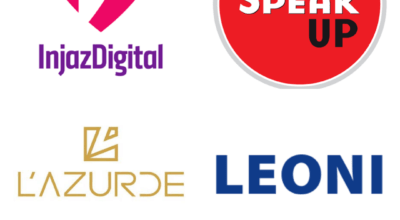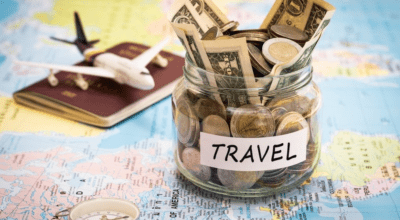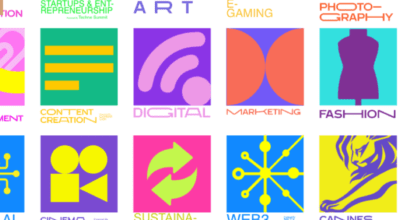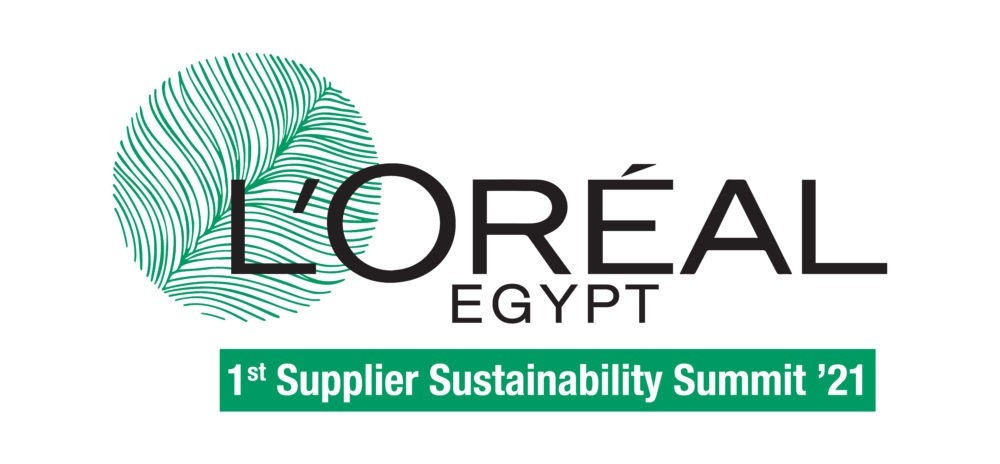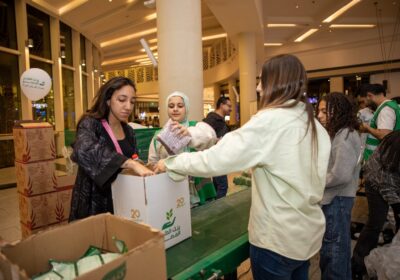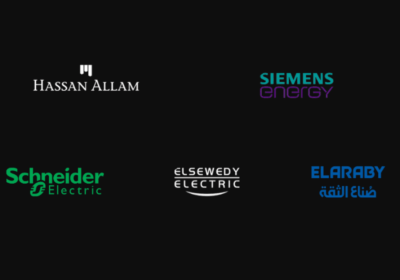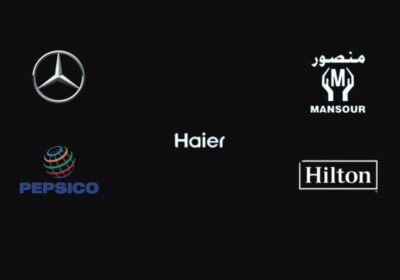More than 70% of global carbon emissions come from just 100 companies, according to an independent study published in 2017. And our ongoing usage of single-use plastics is harmful to our health and destroys our environment. Unfortunately, this is old news. But why is it persistent?
While substantial power lies within consumers’ decisions, companies in the fast-moving consumer goods (FMCGs) and consumer-packaged goods (CPGs) sector should stop perpetuating the problem through massively producing single-use plastics and relying on virgin—instead of recycled—plastic.
Consumers are becoming increasingly aware of this, and companies in the Egyptian private sector are too. There are recycling initiatives tying themselves to the United Nations’ 2030 sustainable development goals (SDGs) all over the place.
Today, we look at one of the companies in Egypt attempting to mitigate the crisis—L’Oréal. The global giant is known for pioneering in cosmetics and the beauty industry. Since 2013, the company has set a highly ambitious vision to tackle realizing sustainability and protecting the environment with great achievements over the past years.
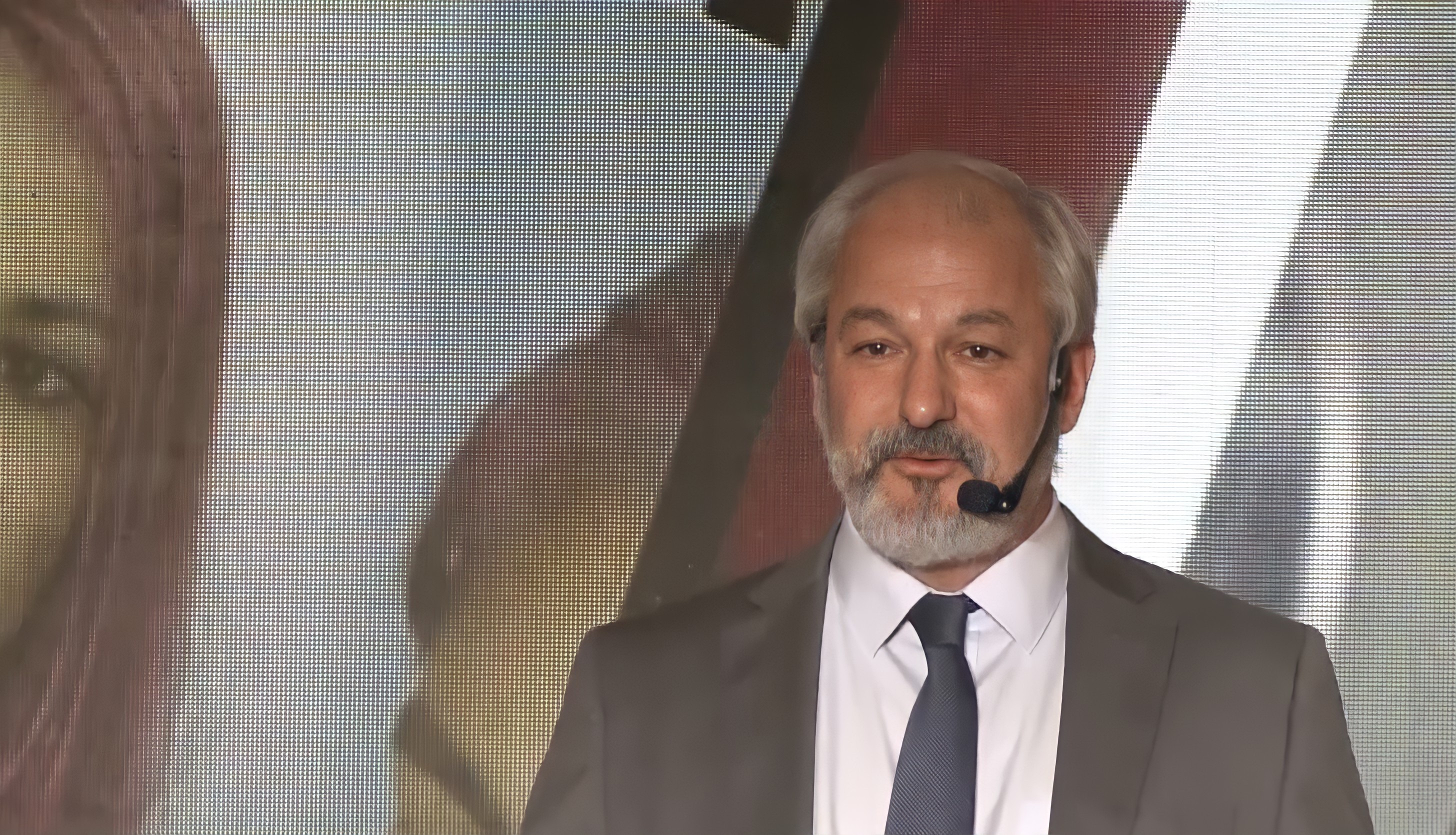
Benoit Julia, Country Managing Director of L’Oréal Egypt, during his presentation at the ‘1st Suppliers Sustainability Summit’.
“We succeeded in building the first regional factory in Cairo that follows global sustainability standards and is certified by the Leadership in Energy and Environmental Design (LEED) program.
And over the last 5 years, we managed to reduce carbon dioxide emissions by 41%, waste by 45%, and water consumption by 24%.”
– Benoit Julia, Country Managing Director of L’Oréal Egypt, during the ‘1st Suppliers Sustainability Summit‘.
After presenting the above about L’Oréal’s factory in Egypt, Julia also stated that—by 2025—they’re set to make their Cairo factory completely carbon neutral, and by 2030 all plastic products will be refillable, compostable, reusable, or recyclable!
Leading their sustainability efforts over the coming ten years is the ‘L’Oréal for the Future’ vision. Launched in 2020, it’s built on the following three pillars…

Under that strategy, L’Oréal Egypt recently held the ‘1st Suppliers Sustainability Summit’. In an event that is the first of its kind in Egypt, they gathered with suppliers—related to their industry and beyond—to publicly discuss bringing about implementable change that could make the entire supply chain more sustainable.
“Through this summit, L’Oréal exhibited the solutions, applications, and standards meant to ensure all of its POSMs are eco-designed and more sustainable.”
–Benoit Julia, Country Managing Director of L’Oréal Egypt.
What We Learned About L’Oréal Egypt at the ‘1st Suppliers Sustainability Summit’
First of all, it was clear that the ‘L’Oréal for the Future’ vision isn’t just about reducing the company’s impact on the environment. It’s also about taking planetary boundaries into consideration at every step of their value chain, and those include climate, water, biodiversity, and resources.
And under the ‘Empowering Our Business Ecosystem’ pillar of the strategy, they’re extending this to suppliers. “said Benoit Julia, Country Managing Director of L’Oréal Egypt, during the summit.
That’s where POSMs come into play…
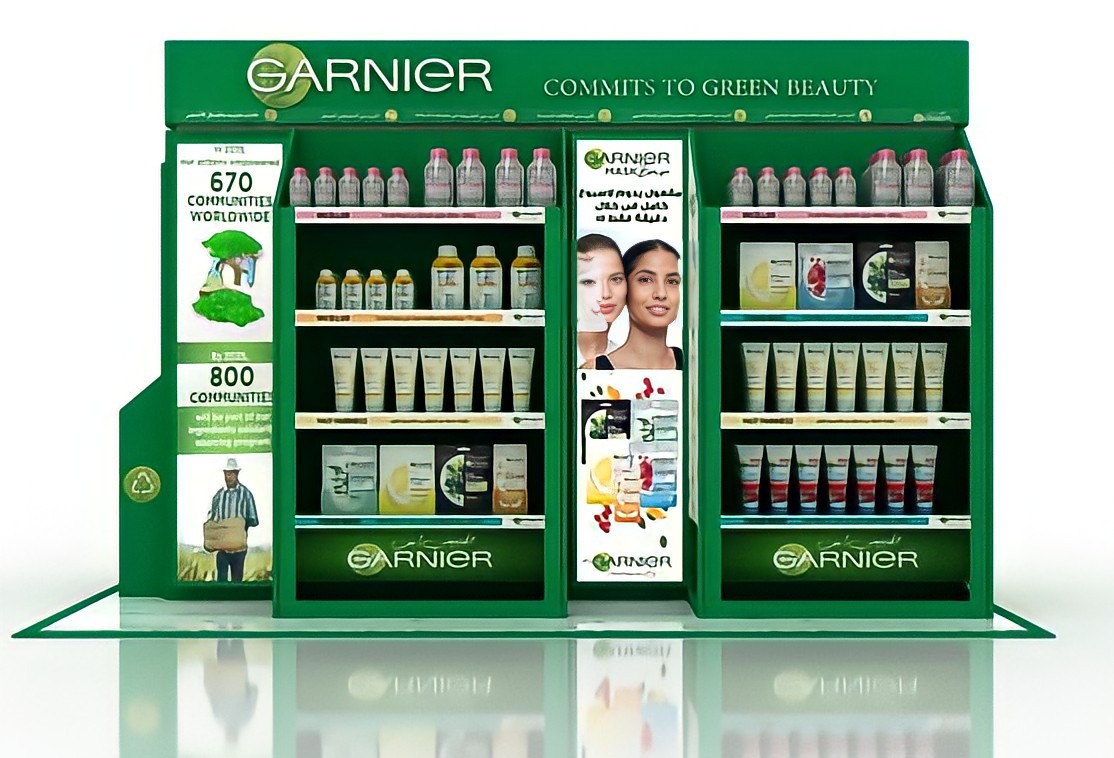
A model of one of Garnier’s more sustainable and eco-friendly POSMs.
POSMs are everywhere. For those of you unfamiliar with the term, it refers to the advertising materials used to communicate product information to the consumers at the point of sale.
Kiosks, popup shops, posters, danglers, dummy boxes, shelf branding, shelves, booths, and leaflets—are all examples of POSMs you can find around every mall, pharmacy, and supermarket you go to. Some are permanent, and others are temporary. They can cause sizable environmental harm and they’re where the products of FMCGs and CPGs are displayed.
L’Oréal views POSMs as part of the excellent retail experience they strive to offer to their customers. That’s why they want them to be eco-designed and made from more sustainable materials so that they’re less harmful to the environment. That’s what the summit was mainly about.
“Launching the ‘1st Supplier Sustainability Summit’ is our first step towards collaborating with our suppliers to tackle the optimum use of natural resources and POSMs’ waste,” explained Nahla Mokhtar, Communications and Sustainability Director at L’Oréal Egypt.
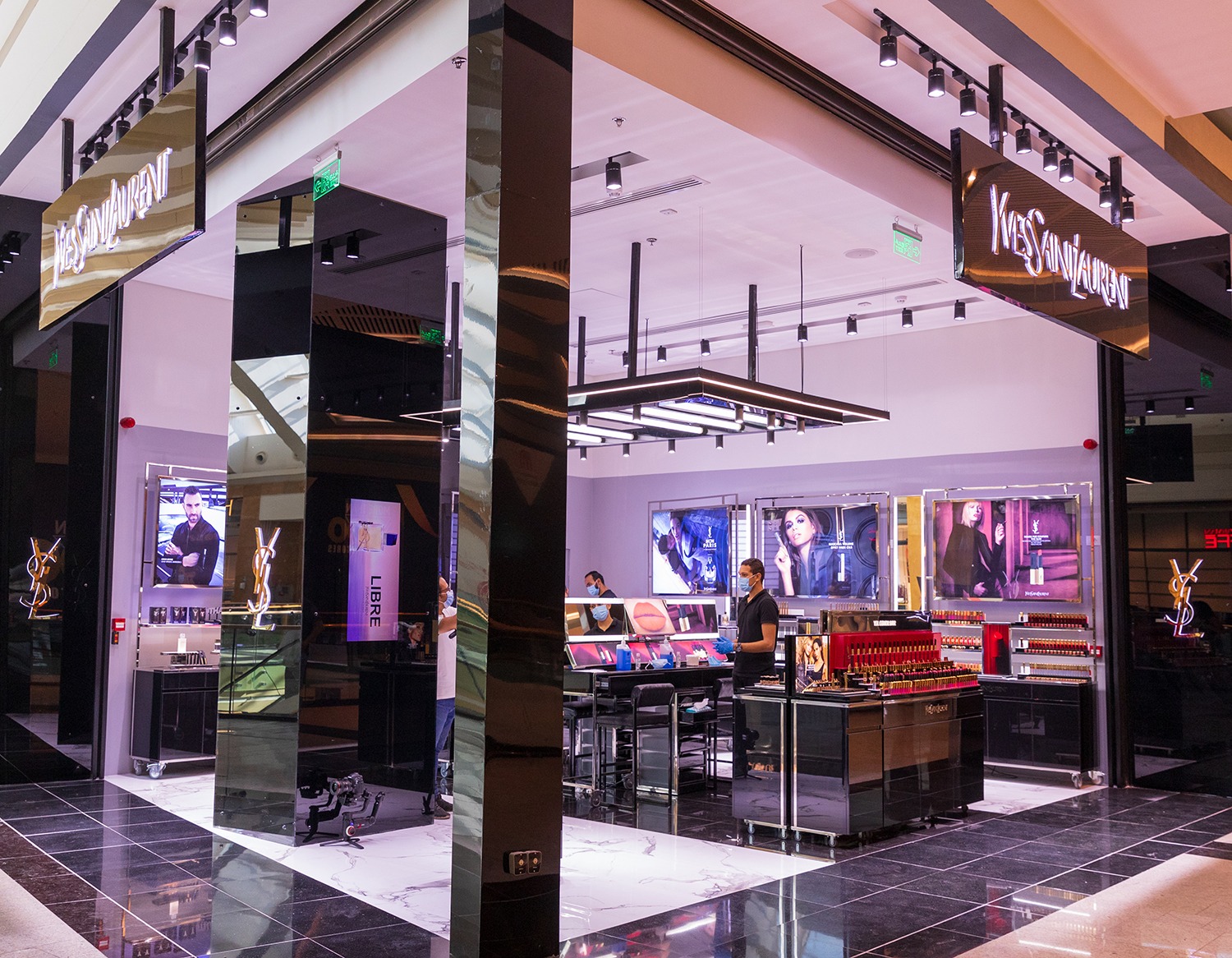
Examples of POSMs at L’Oréal’s Yves Saint Laurent’s store in Cairo.
She then elaborated, “Our primary aim is to make a positive and long-lasting impact— within our industry and beyond—by empowering and upskilling suppliers through our international experience and knowledge of best practices. And we’ve already accomplished numerous success stories in this area.”
Their ‘14 Golden Rules’ show how they’re attempting to accomplish that.
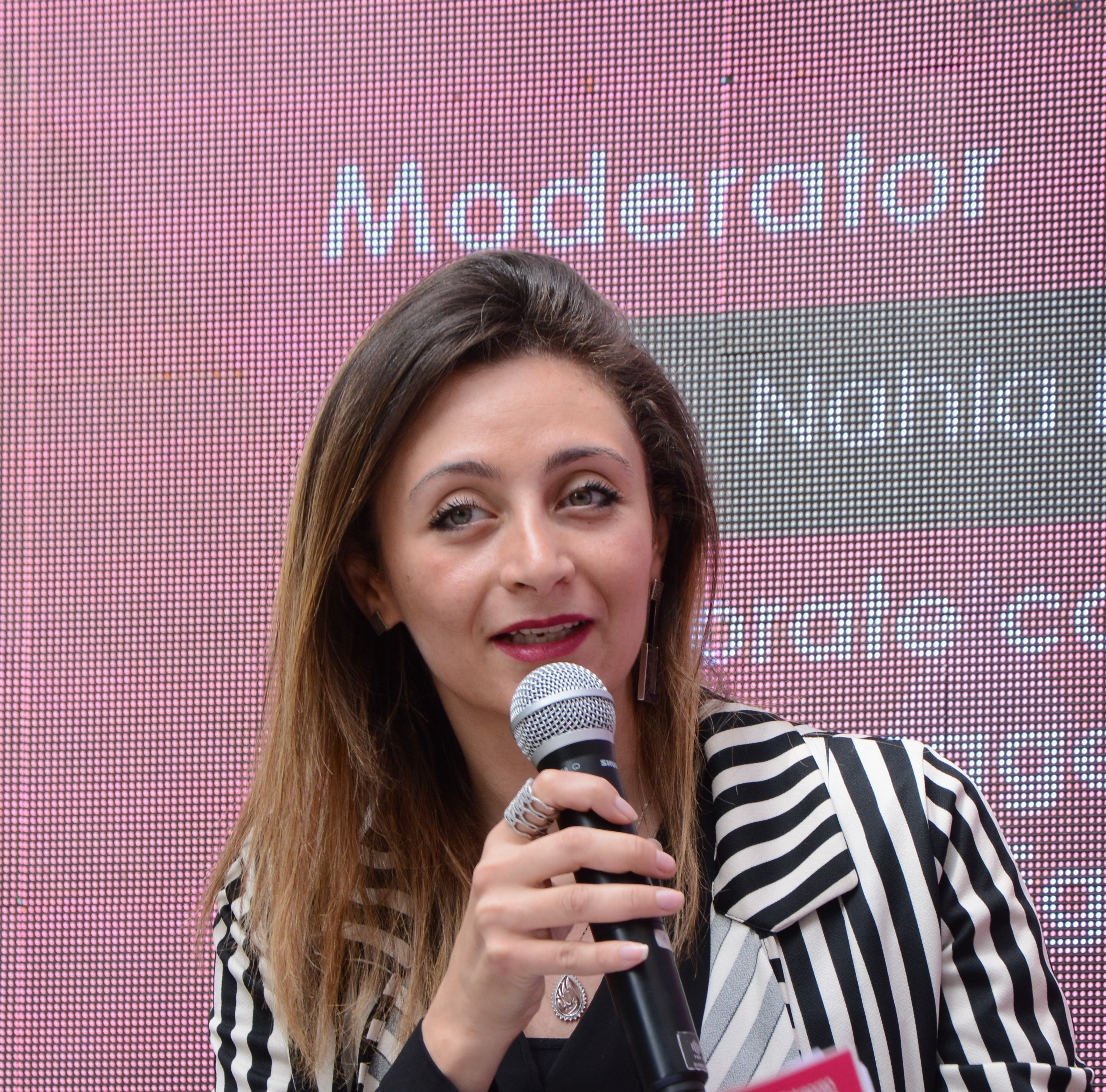
Nahla Mokhtar, Communications and Sustainability Director at L’Oréal Egypt, was one of the speakers at the company’s ‘1st Suppliers Sustainability Summit’.
“It’s a mindset change, and a desire to innovate and produce while respecting planetary boundaries. That’s the main concept behind everything we do.”
-Nahla Mokhtar, Communications and Sustainability Director at L’Oréal Egypt.
The 14 Golden Rules: How L’Oréal Is Pushing POSM Suppliers to Become More Sustainable
The 14 golden rules put forth by L’Oréal show are divided into 5 must-haves and 9 recommendations on best practices that could make the supply chain greener. The following summarizes the 5 must-have rules.
1) Optimize total weight while keeping global technical performance
Suppliers will be required to reduce the weight on at least the main materials of POSMs while maintaining their global technical performance. They should also investigate how to reduce production waste at all stages of the process while communicating the limiting factor preventing its further reduction.
This will also result in lowered carbon emissions and pollutants from the vehicles transporting POSMs.
2) Using only paper, cardboard, and wood with Forest Stewardship Council Certification
Although paper, cardboard, and wood are renewable, that doesn’t mean their usage can’t be harmful to the forests they come from. That’s why organizations like the Forest Stewardship Council (FSC) exist. FSC is an international non-profit organization founded back in 1993 with the purpose of promoting responsible management of the world’s forests.
L’Oréal’s golden rules entail that paper, cardboard, or wood used is certified by FSC. They also recommend them to POSM and retail suppliers, while making the supplier’s certification mandatory whenever FSC’s label claims certification on the POSM.
3) Using recycled or renewable materials
Post-consumer or post-industrial recycled materials come from the waste that remains after a consumer has finished using a product or after the production process in a factory, respectively. They’ll be used to create most of the POSMs alongside materials from easily replaceable natural renewable resources.
4) Banning electronic components of temporary POSMs
To generate less long-lasting and polluting waste, they’re committing their suppliers to avoid using batteries, magnets, or any electric components for their temporary POSMs.
5) Easing the separability of different materials
If POSMs are composed of multiple materials, different plastic resins should be limited to a maximum of 3 per POSM unit.
Otherwise, materials should be separable to get easily collected and recycled. That’s why suppliers should, for example, avoid using glue.
The remaining 9 rules encourage suppliers to lessen the impact of their work on the environment through POSMs-related recommendations on packaging, printing, transportation, and a lot more.
By the end of this year, L’Oréal Egypt aims to make each POSM unit eco-designed in collaboration with the suppliers they work with. And they’re hoping to expand this mindset to all players in the market. It is a step closer towards a more sustainable and therefore better future.
You can find out more about the company’s 2030 vision, ‘L’Oreal for the Future’,
What do you make of L’Oréal group’s efforts to fight plastic waste? Share your take with us and help us take this conversation places…




